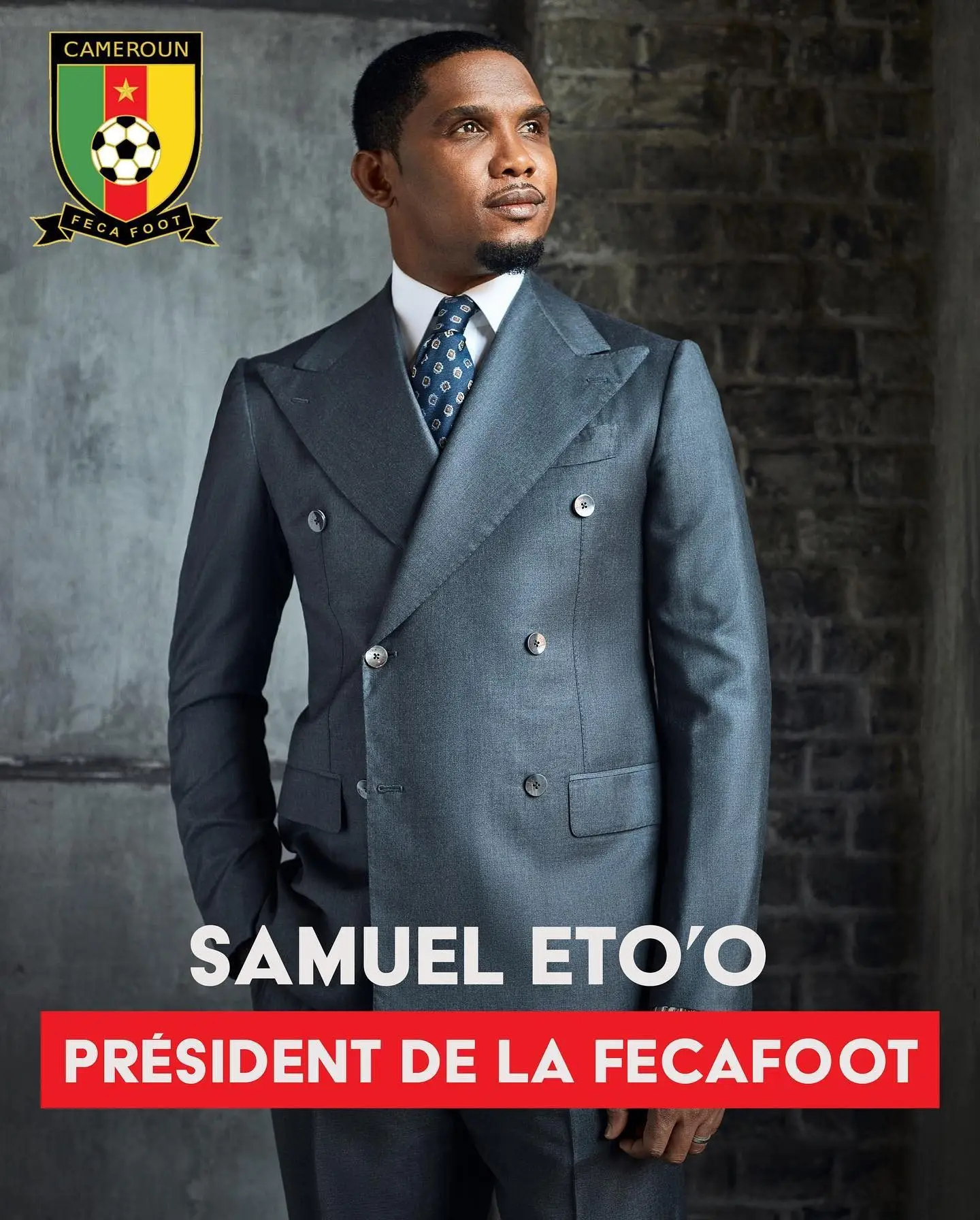Samuel Eto’o, the legendary Cameroonian football icon, made headlines when he assumed the role of President of the Cameroonian Football Federation (FECAFOOT) in 2018. His appointment was met with both optimism and skepticism, as he brought with him a glittering career and a passion for the sport, but also faced the immense challenge of reviving a struggling football organization. As FIFA urges his removal from the position, let’s take a closer look at the good, the bad, and the ugly of Samuel Eto’o’s tenure as FECAFOOT president.

The Good: Achievements and Positive Impact
- Inspiration to Young Players: Eto’o’s appointment served as an inspiration to young Cameroonian football players. His legacy as one of Africa’s greatest footballers motivated many to pursue their dreams with renewed vigor.
- Youth Development: Under Eto’o’s leadership, FECAFOOT initiated several youth development programs and grassroots initiatives aimed at identifying and nurturing young talents. These programs have the potential to rejuvenate Cameroonian football in the long run.
- Increased Investment: Eto’o’s involvement attracted sponsorships and investments to Cameroonian football, injecting much-needed funds into the federation and various clubs.
- Improved National Team Performance: The Cameroonian national team’s performance showed signs of improvement during Eto’o’s tenure. They secured qualification for the 2021 Africa Cup of Nations, demonstrating progress on the field.
The Bad: Setbacks and Challenges
- Administrative Inexperience: Eto’o’s transition from a legendary player to a football administrator was not without challenges. His lack of experience in football administration became evident in the early days of his presidency, leading to administrative hiccups.
- Allegations of Corruption: Eto’o faced allegations of financial irregularities during his tenure, which raised questions about transparency and accountability within FECAFOOT.
- Struggles in Domestic Leagues: Cameroonian domestic football continued to face issues related to infrastructure, player welfare, and financial sustainability, and Eto’o’s presidency struggled to provide effective solutions.
- Conflict with FIFA: Perhaps the most significant issue was the ongoing conflict with FIFA, which called for Eto’o’s removal. FIFA’s intervention in the internal affairs of FECAFOOT highlighted governance problems within the federation.
The Ugly: FIFA’s Call for Removal
FIFA’s recent call for the removal of Samuel Eto’o as FECAFOOT president casts a dark shadow over his tenure. The international governing body cited “government interference” as the primary reason for its demand. This move threatens to further disrupt the already tumultuous state of Cameroonian football.
The future of Samuel Eto’o’s role as FECAFOOT president remains uncertain. The ongoing conflict with FIFA and the allegations of financial misconduct have cast a cloud of uncertainty over his leadership. It is essential for FECAFOOT to address governance issues promptly and transparently to maintain the integrity of the organization.
While Eto’o’s intentions to rejuvenate Cameroonian football were undoubtedly noble, his tenure has been marred by controversies and challenges. The football legend’s legacy, both as a player and as a football administrator, remains a topic of debate among fans and pundits.
In conclusion, Samuel Eto’o’s presidency at FECAFOOT has had its share of successes and failures. His commitment to youth development and his inspirational leadership have brought hope to Cameroonian football. However, allegations of corruption and FIFA’s call for his removal have overshadowed his tenure. The future of Cameroonian football and Eto’o’s role in it will depend on how these issues are addressed moving forward.